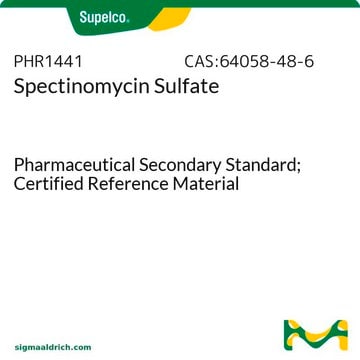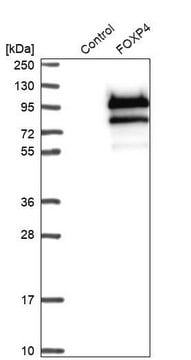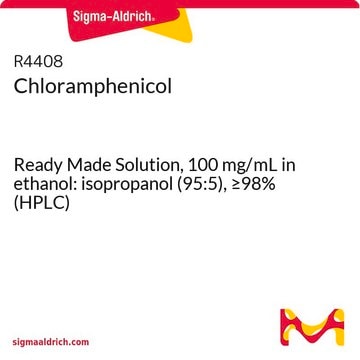S0692
Spectinomycin
Ready Made Solution, 100 mg/mL in DMSO/H2O, 1:1
Synonym(s):
Actinospectacin
About This Item
Recommended Products
biological source
Streptomyces sp.
Quality Level
form
solution
concentration
100 mg/mL in DMSO/H2O, 1:1
color
colorless
solubility
DMSO/H2O, 1:1: soluble 100 mg/mL
antibiotic activity spectrum
Gram-negative bacteria
Gram-positive bacteria
mycobacteria
Mode of action
protein synthesis | interferes
shipped in
wet ice
storage temp.
−20°C
Looking for similar products? Visit Product Comparison Guide
General description
Application
Biochem/physiol Actions
Mode of Resistance: A mutation in rpsE, the gene for ribosomal protein S5, prevents the binding of spectinomycin. Resistance is also conferred by the aminoglycoside-3′-adenyltransferase gene (aadA).
Antimicrobial spectrum: Spectinomycin acts against gram-negative and gram-positive bacteria.
Caution
Preparation Note
Storage and Stability
Other Notes
Storage Class Code
10 - Combustible liquids
WGK
WGK 2
Flash Point(F)
201.0 °F - closed cup
Flash Point(C)
93.9 °C - closed cup
Personal Protective Equipment
Certificates of Analysis (COA)
Search for Certificates of Analysis (COA) by entering the products Lot/Batch Number. Lot and Batch Numbers can be found on a product’s label following the words ‘Lot’ or ‘Batch’.
Already Own This Product?
Find documentation for the products that you have recently purchased in the Document Library.
Customers Also Viewed
Our team of scientists has experience in all areas of research including Life Science, Material Science, Chemical Synthesis, Chromatography, Analytical and many others.
Contact Technical Service







